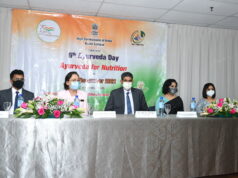KUALA LUMPUR, July 29 – Muslims fast during Ramadan but fulfilling this obligation can prove to be difficult for diabetics.
Abstaining from food and drinks dawn to dusk, can prove to be dangerous for Muslims especially if their diabetic condition is not under control.


“We understand that many diabetics do not want to miss fasting during Ramadan. However, diabetics have to realise that if fasting causes more harm than good, the rule of religion itself forbids them from doing so,” said Professor Dr Nor Azmi Kamaruddin from the Department of Medicine, University Kebangsaan Malaysia (UKM).


“It is sad to see that even with the high level of healthcare system we have today in the country, in term of diabetes control we are only at par with countries like Bangladesh,” he said.
UNFIT AND POORLY INFORMED
“The good thing is that despite of their diabetic condition, Malaysia has among the highest percentage of Muslim diabetics fasting at least more than a day during Ramadan.
“Ninety per cent of those with diabetes type one (DT1) and 95 per cent of those with diabetes type two (DT2) participate in the fast during Ramadan.
“Study also found that only 79 percent of DT1 patients and 51 per cent of DT2 patients received guidance or recommendation from doctors in undergoing the Ramadan obligation,” explained Dr Nor Azmi.
With proper guidance and monitoring, more Muslim diabetics can fast safely and for many more days.
MONITOR DIABETES VIA SMART DEVICES
Recognising the unique challenges faced by 50 million diabetic Muslims worldwide who choose to fast during Ramadan, the healthcare company MSD recently highlighted two approaches available to diabetics to better monitor their condition while fasting.
The first was the booklet entitled ‘The Facts about Fasting During Ramadan’ Information Booklet, which was first introduced in 2011.
The 15-page booklet details key points on fasting, tips prior to fasting, daily blood sugar level tracker table as well as a calendar to list prayer times and the breaking of fast.
It is available at all Malaysian Diabetes Association offices around the country as well as most clinics, hospitals and pharmacies.
The second one is the MSD Apple Mobile Application introduced in 2012 with the apps being similar to the booklet in content, except for some interactive features for the benefit of its users.
This application is compatible with Apple devices, namely the iPhone, iPod Touch and iPad and can be downloaded for free via iTunes App Store.
“By leveraging the outreach power of mobile technology, MSD is providing yet another opportunity to support Muslim diabetics living with DT2,” said Annie Chin, Managing Director of MSD.
Interestingly, data stored in blood sugar tracker function in the application can be shared on screen with the doctor during consultation.
Alternatively, it can also be saved in PDF format and emailed to the doctor for monitoring purpose.
Furthermore, the application also provides times for prayer and breaking fast based on a users’ respective location.
So with the knowledge of their diabetic condition at their finger tips, Muslim diabetics can now fast more confidently.
– BERNAMA










